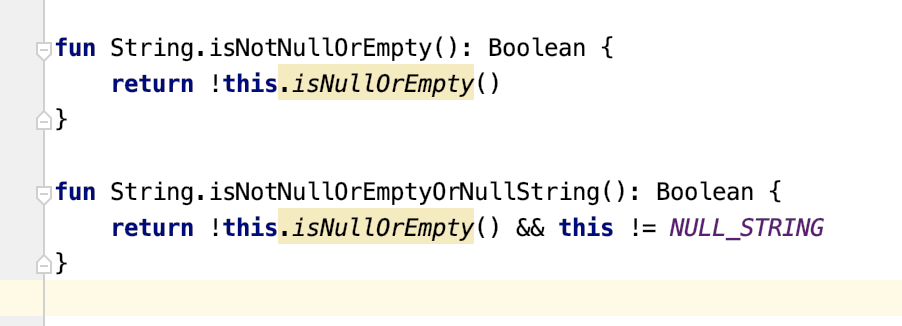Is it possible to access extension functions from Java code?
I defined the extension function in a Kotlin file.
package com.test.extensions
import com.test.model.MyModel
/**
*
*/
public fun MyModel.bar(): Int {
return this.name.length()
}
Where MyModel is a (generated) java class.
Now, I wanted to access it in my normal java code:
MyModel model = new MyModel();
model.bar();
However, that doesn't work. The IDE won't recognize the bar() method and compilation fails.
What does work is using with a static function from kotlin:
public fun bar(): Int {
return 2*2
}
by using import com.test.extensions.ExtensionsPackage so my IDE seems to be configured correctly.
I searched through the whole Java-interop file from the kotlin docs and also googled a lot, but I couldn't find it.
What am I doing wrong? Is this even possible?



import package com.test.extensions.MyModel? – Colladocom.test.extensions.ExtensionsPackage– Elroyels